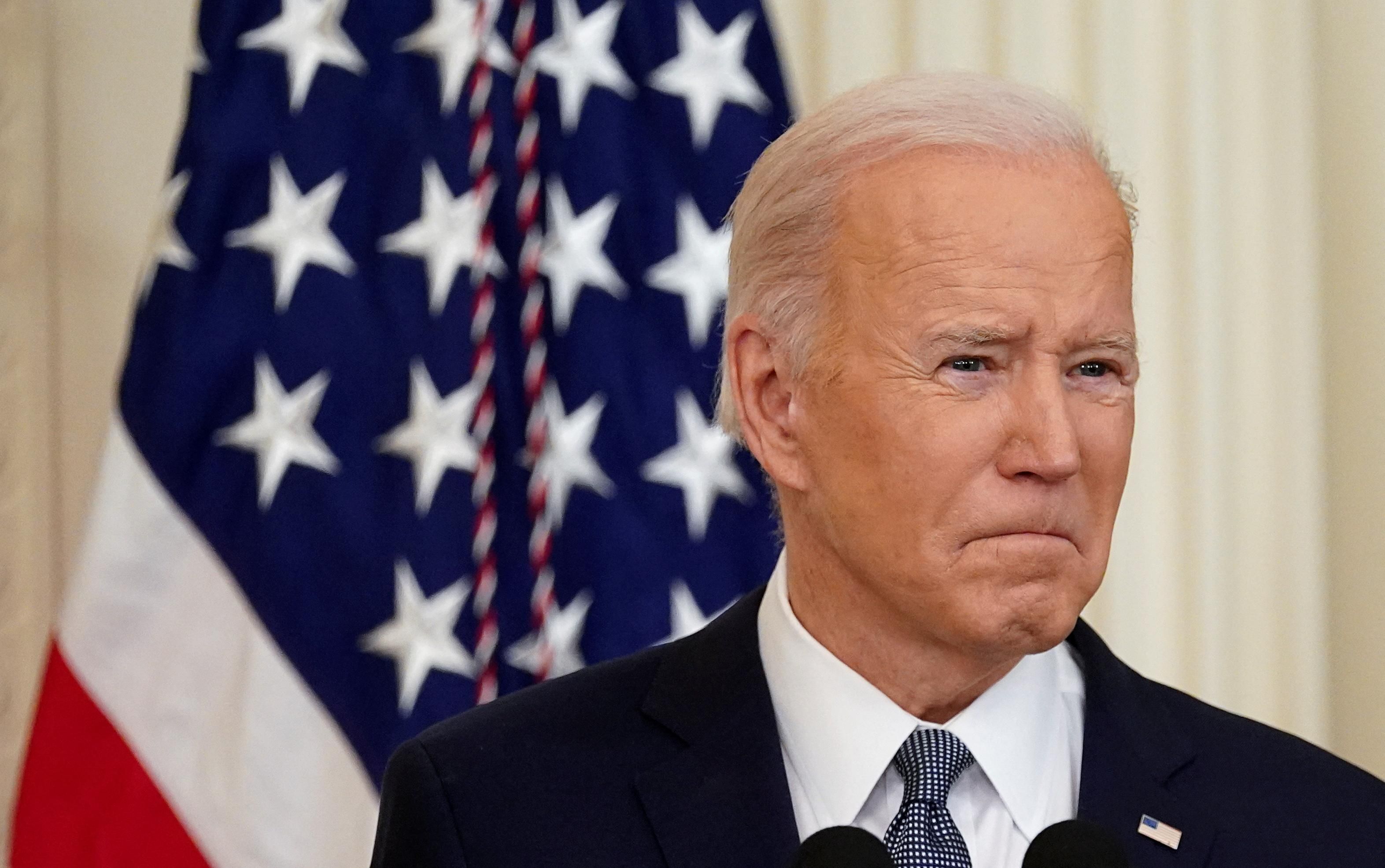President Joe Biden's speechwriters have been busy. They likely scrapped and rewrote much of his State of the Union address after Russia invaded Ukraine.
The annual address, to be delivered at the US Capitol on Tuesday night, is usually an opportunity for the president to lay out a political vision, laced with a healthy dose of cheery optimism.
But Biden will rise to the podium against the backdrop of relentless bad news. Ahead of his first SOTU, what issues are plaguing Biden’s presidency and how might he try to spin them in his favor?
COVID. After a brutal start to the new year, the pandemic seems to be on the wane in America. Hospitalizations have plunged 44% over the past two weeks, and cases are plummeting nationwide.
What’s more, the CDC just eased masking requirements for 70% of the country, including for school students. This is good timing for Biden, who will try to pitch his address to independents and moderate “Never Trump” Republicans, many of whom have been pushing hard for the easing of pandemic restrictions, particularly for kids.
Ukraine. For President Biden, who long served on the Senate Committee for Foreign Relations, the standoff with Russia has presented an opportunity to showcase his statesman bonafides and unify the transatlantic alliance.
What’s more, in getting European allies and other global partners to swiftly agree to impose crippling economic sanctions on Russia, Biden has managed to inspire a rare bit of bipartisan common ground (the contrarian wing of the GOP not withstanding). Thus far, US voters seem impressed: Nearly half of all voters approve of Biden’s handling of the crisis, according to a new Morning Consult poll. That’s a significant change from perceptions of Biden’s (poor) handling of the chaotic Afghanistan withdrawal last summer.
Inflation. Persistent inflation has been a massive thorn in Biden’s side in recent months, distracting from any other legislative or political gains. Inflation — which reached a 40-year high in recent weeks — has threatened to completely derail Biden and the Democratic Party ahead of midterm elections this November. Indeed, Biden will not be able to gloss over the fact that after two years of pandemic pain, trumped up prices are putting enormous pressure on consumers, adding as much as $276 to the average household’s monthly living expenses, according to a recent study.
But – and it’s a big but – it is also possible that the war in Ukraine – and potential disruptions to global supply chains as a result of Western sanctions on Russian assets – could allow Biden to pin inflation, if it persists at its current clip, on broader geopolitical turmoil. That could be a reasonable fallback position for the White House, particularly after 46% of polled Americans recently said that they supported tough sanctions on Russia even if it meant higher prices at home.
Legislation. Come Tuesday, Biden won’t have many recent legislative wins to gloat about. His Build Back Better Act, a mélange of progressive priorities, is dead in the water because of holdouts within his own party. Meanwhile, the Democrats’ thin majority in Congress has meant that Biden’s proposed legislative reform on voting rights and gun laws remain a pipe dream.
Democrats and Republicans will be watching Biden’s address closely — as will an increasingly erratic Vladimir Putin.
More For You
America’s new National Security Strategy confirms what Europeans have feared for months: Washington now sees a strong, unified European Union as a problem to be solved, not an ally to be supported.
Most Popular
The power of sports
What’s Good Wednesdays™, December 10, 2025
Walmart's $350 billion commitment to American jobs
In this episode of Tools and Weapons, Microsoft Vice Chair and President Brad Smith sits down with Ed Policy, President and CEO of the Green Bay Packers, to discuss how purpose-driven leadership and innovation are shaping the future of one of the world’s most iconic sports franchises. Ed shares how technology and community-focused initiatives, from Titletown Tech to health and safety innovations on the field, are transforming not just the game of football, but the economy and culture of Green Bay itself. He explains how combining strategic vision with investment in local startups is keeping talent in the Midwest and creating opportunities that extend far beyond Lambeau Field.
Subscribe and find new episodes monthly, wherever you listen to podcasts.
More than a week after Hondurans cast their ballots in a presidential election, the country is still stuck in a potentially-dangerous post-election fog.
